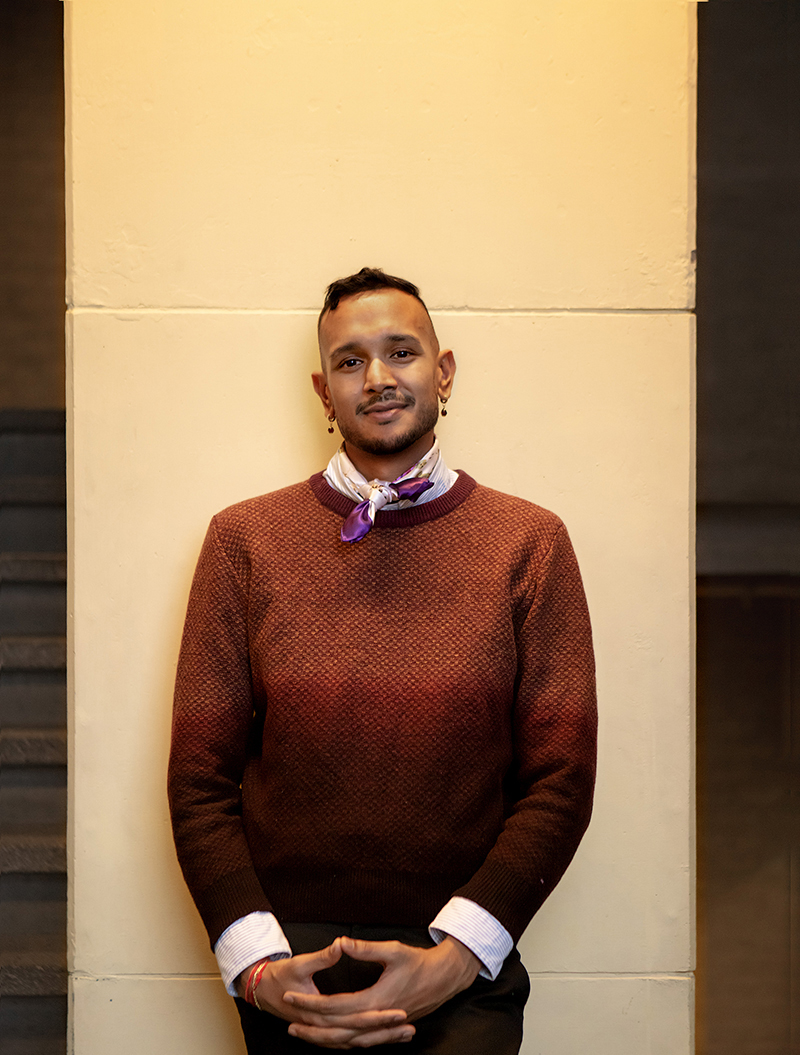Have you always felt strongly against colonialism? “On the contrary. I distanced myself from sociopolitical matters because I couldn’t find myself in them. As the child of two Surinamese parents, the Dutch system can make you feel like a second-class citizen. When I went on exchange to UCLA [University of California, Ed.], I learned a new language: the language of migration. America is a settler colony and gave language to my ‘lived experience’ – a term that until recently didn’t even exist in Dutch. For me, it’s not only an intellectual exercise to understand what colonialism entails and how it perpetuates itself. I contacted the Diversity Office at VU and said: ‘If the students don’t feel your commitment, something is wrong’.”
Was decolonization already on the agenda of the Diversity Office at that time? “In research and education it was, but there is no VU-wide policy. That’s why I wanted to take responsibility. I want decolonization to be fruitful and, at the same time, accessible and straightforward. To do that, you have to start at the beginning: the colonial past and infrastructure of the Netherlands. That’s why I wanted to work on three pillars: the Dutch colonial history, the colonial history of VU, and the momentum we have now, with the Slavery Past Commemoration Year and the attention for movements like Black Lives Matter.”
Decolonizing academia
By reducing colonial influences, structures, and ways of thinking, universities aim to create a more inclusive, diverse, and just academic environment. The decolonization process seeks to make room for non-Western perspectives and critique historical colonial mechanisms.
You seem to have had a clear approach. But where do you start? “I looked at what was already happening at VU, and what wasn’t. Doing something like this at a university was pioneering work without guidelines or a safety net. I saw colonial mechanisms but also opportunities for improvement. Scientific bodies, research institutes, and departments had isolated islands of knowledge, but didn’t connect. Decolonization holds up a mirror to the academy. It turns double standards into a double-edged sword. For me, it is in the interest of VU. In order to go forward, the university has to look at the past with an open heart and an open mind.”
How does colonialism manifest itself at VU? “Western universities still think and operate mostly in a vacuum. This is evident in the curriculum, which is Eurocentric and therefore outdated. For example, I didn’t understand why in an ethics course in my master’s, only European philosophers were discussed. By operationalizing decolonization, VU can effectively internationalize much further, professionalize the curriculum, train new teachers with more diverse perspectives, decentralize power and strengthen connections with other universities, also in formerly colonized areas.”
What has your role as a diversity officer yielded so far? “The most concrete is the decolonization lab. A physical space on the 11th floor of the main building, where decolonization can be made tangible, visible, readable, and interactive. A platform where bodies come together, reaching everyone from students with or without a colonial experience to scientists who valorise knowledge. Decolonization ensures a historically informed way and mechanism to continue looking critically at ourselves as a university.”
Are you optimistic? “I am poetic in life, that is the only way for me. And I see the masks falling. Colonization has caused us to lose sight of humanity and nature. But I believe that humans have the capacity to live a healthy life. If we keep that as a foundation, decolonization provides space to regain and safeguard humanity in academic freedom.”

Congratulations, Danny Soekarnsingh! That’s the way to go. I appreciate your critical decolonial perspective and your commitment, and wish you much success in this much needed work. I hope the community embraces it and joins in, as this is a collective responsibility.